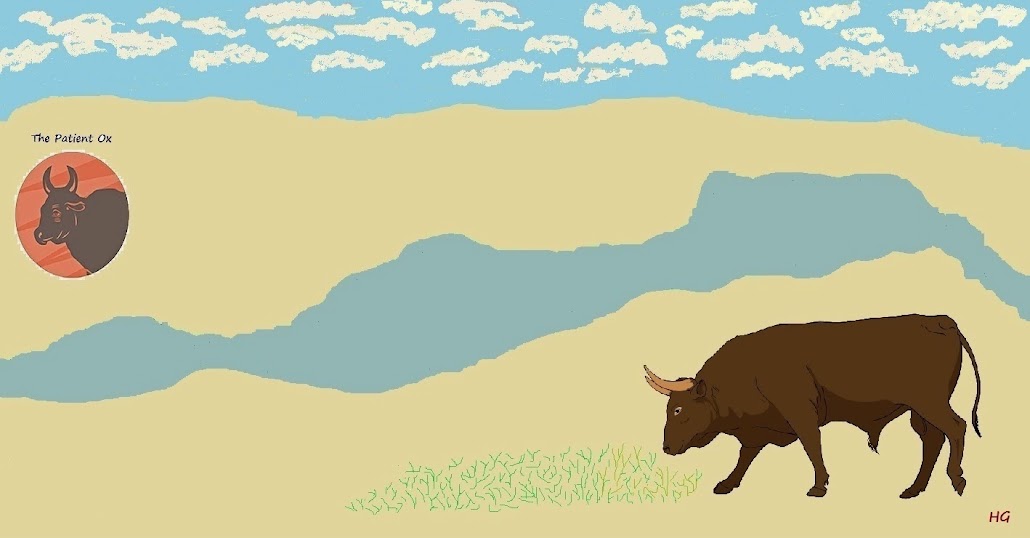- by -
Eartha Kitt
L Y R I C S
/// ---- ///
Did you ever hear the story of Long John Dean?
A bold bank robber from Bowlin' Green
Was sent to the jailhouse yesterday
But late last night he made his getaway
------------------------------
[Refrain with Chorus]
[He's long gone]
From Kentucky
[Long gone]
Ain't he lucky?
Long gone and what I mean
He's long gone John from Bowlin' Green.
--------------------------------------
Long John stood on the railroad tie
A-waitin' for a freight train to come by
Freight train came just puffin' and flyin'
You oughta seen long John grabbin' that blind
-----------------------------
[Refrain with Chorus]
-------------------------
Now they caught him in 'Frisco and to seal his fate
At San Quentin they jailed him one evening late
Out on the ocean John did escape
'Cause the guards forgot to close the Golden Gate
--------------------------------
[Refrain with Chorus]
--------------------------------
Now they offered a reward to bring him back
Even put bloodhounds on his track
Those doggone bloodhounds lost his scent
Now nobody knows where Long John went.
----------------------------
[Refrain with Chorus]
-----------------------------
A gang of men tried to capture Dean
So they chased him with a submarine
Dean jumped overboard, grabbed the submarine
And made that gang catch a flyin' machine
---------------------------------------------
He was long gone
From San Quentin
[long gone]
He's still a sprinting
Long gone, I'm telling you
Go shut your mouth
And shut mine too
Ah-ha!
----------------------------------
[Long gone]
From Kentucky
[Long gone]
Oh man he's lucky
[Long gone]
Grab that blind
[Long gone]
Oh, that man is fine
[Long gone]
They tell me he's still a-sprinting
[Long gone]
This cat is gone!
[Long gone]
I hope he finds a pad [long gone]
because it's kind of tough [long gone]
stomping out in the open like that [long gone]
(fading out...) Oh yeaah ,,, [long gone]
--------------////------------////--------------
/// ---- ///
Did you ever hear the story of Long John Dean?
A bold bank robber from Bowlin' Green
Was sent to the jailhouse yesterday
But late last night he made his getaway
------------------------------
[Refrain with Chorus]
[He's long gone]
From Kentucky
[Long gone]
Ain't he lucky?
Long gone and what I mean
He's long gone John from Bowlin' Green.
--------------------------------------
Long John stood on the railroad tie
A-waitin' for a freight train to come by
Freight train came just puffin' and flyin'
You oughta seen long John grabbin' that blind
-----------------------------
[Refrain with Chorus]
-------------------------
Now they caught him in 'Frisco and to seal his fate
At San Quentin they jailed him one evening late
Out on the ocean John did escape
'Cause the guards forgot to close the Golden Gate
--------------------------------
[Refrain with Chorus]
--------------------------------
Now they offered a reward to bring him back
Even put bloodhounds on his track
Those doggone bloodhounds lost his scent
Now nobody knows where Long John went.
----------------------------
[Refrain with Chorus]
-----------------------------
A gang of men tried to capture Dean
So they chased him with a submarine
Dean jumped overboard, grabbed the submarine
And made that gang catch a flyin' machine
---------------------------------------------
He was long gone
From San Quentin
[long gone]
He's still a sprinting
Long gone, I'm telling you
Go shut your mouth
And shut mine too
Ah-ha!
----------------------------------
[Long gone]
From Kentucky
[Long gone]
Oh man he's lucky
[Long gone]
Grab that blind
[Long gone]
Oh, that man is fine
[Long gone]
They tell me he's still a-sprinting
[Long gone]
This cat is gone!
[Long gone]
I hope he finds a pad [long gone]
because it's kind of tough [long gone]
stomping out in the open like that [long gone]
(fading out...) Oh yeaah ,,, [long gone]
--------------////------------////--------------








